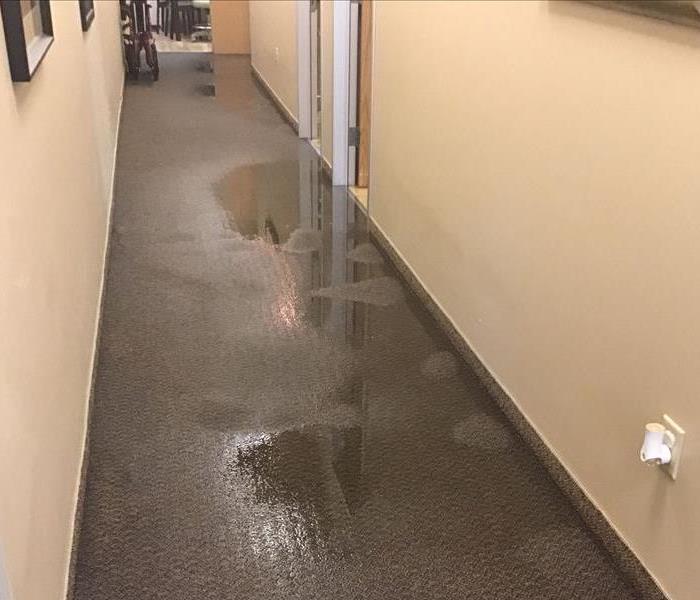What can water damage do to your home?
9/12/2023 (Permalink)
Water damage can have serious and long-lasting effects on your home. It can result from various sources, such as leaks, floods, burst pipes, or even high humidity levels. Here are some of the common ways water damage can affect your home:
Structural Damage: Water can weaken the structural integrity of your home. It can damage the foundation, walls, ceilings, and floors. Over time, this can lead to costly repairs or even compromise the safety of your home.
Mold and Mildew Growth: Moisture provides an ideal environment for mold and mildew to thrive. Mold can grow on various surfaces, including drywall, wood, and insulation. It not only damages these materials but also poses health risks to occupants.
Electrical Issues: Water damage can damage electrical systems and appliances in your home. This can lead to short circuits, electrical fires, or appliance malfunctions. Electrical problems are particularly dangerous, as they can cause safety hazards.
Health Risks: Mold and mildew growth resulting from water damage can trigger allergies, respiratory problems, and other health issues in occupants. Prolonged exposure to damp conditions can lead to health concerns.
Reduced Property Value: Homes with a history of water damage may lose value in the real estate market. Potential buyers are often wary of purchasing homes with a history of water damage due to the potential for hidden problems and the cost of repairs.
Pest Infestations: Moisture attracts pests such as termites, cockroaches, and rodents. These pests can cause additional damage to your home and pose health risks.
Aesthetic Damage: Water damage can leave unsightly stains on walls, ceilings, and floors. These stains can be challenging to remove and may require repainting or refinishing.
Odor: Stagnant water and mold growth can create unpleasant odors in your home. These odors can persist even after the visible damage is repaired.
Insulation Damage: Insulation materials can absorb water, reducing their effectiveness. This can lead to increased energy costs as your HVAC system works harder to maintain a comfortable temperature.
Weakened Foundation: If water damage affects the foundation of your home, it can lead to settling, cracks, and structural issues. These problems can be expensive to repair and compromise the stability of your house.
To prevent water damage and mitigate its effects, it's essential to maintain your home, address any leaks or plumbing issues promptly, and take steps to ensure proper drainage and moisture control. Regular inspections and maintenance can help you identify and address potential water damage issues before they become major problems.






 24/7 Emergency Service
24/7 Emergency Service
